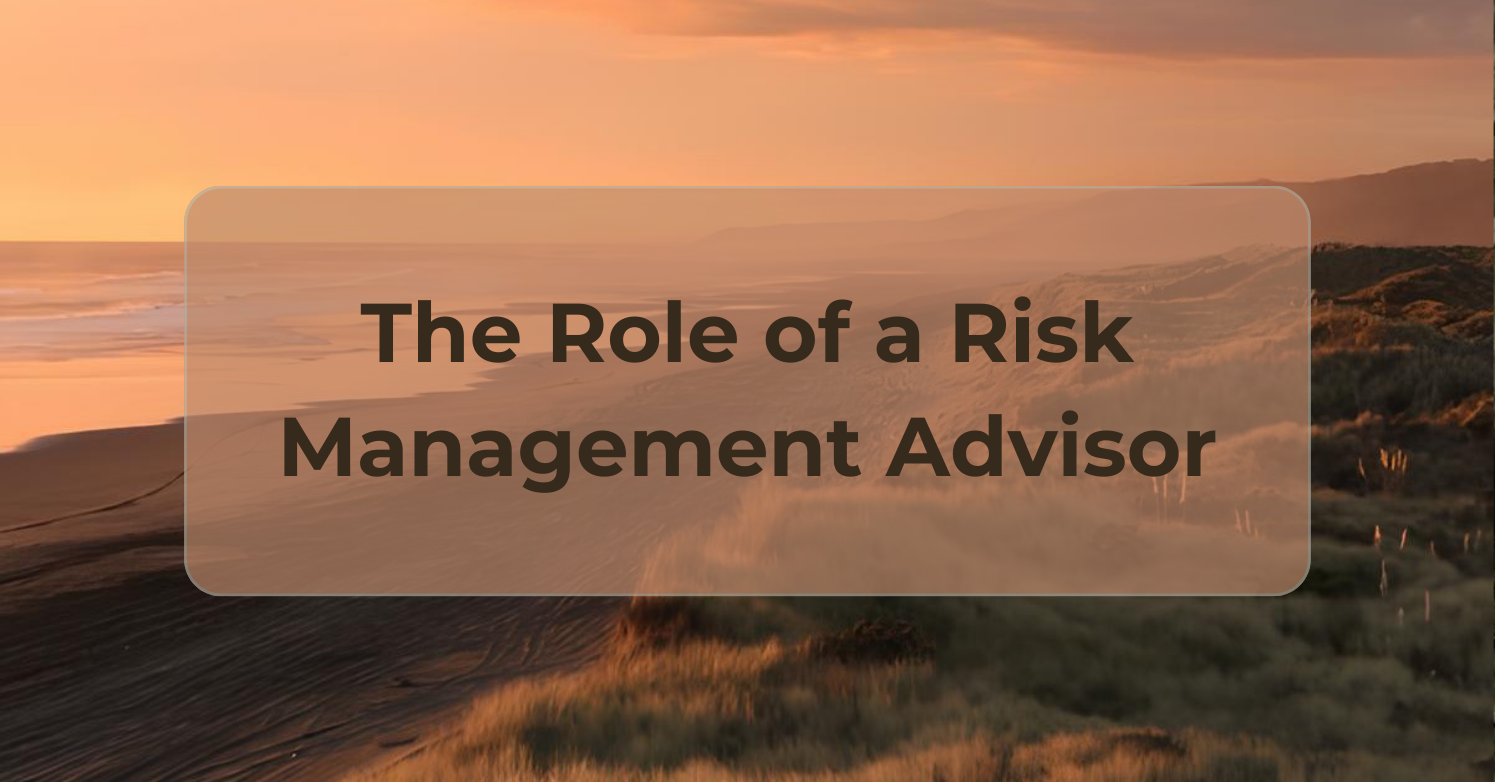In today’s volatile business environment, large organisations in Europe must base their strategic decisions on accurate and timely information. One of the most effective ways to ensure these decisions are well-informed is by working with a risk management advisor. These professionals play a vital role in helping businesses navigate complex challenges, including financial, operational, technological, and environmental risks. This article will explore how global risk consulting services, guided by a risk management advisor, help businesses in Europe make informed strategic decisions. We will focus on current market trends, emerging risks, and future predictions.
The European market faces numerous challenges, such as geopolitical tensions, regulatory changes, and environmental disruptions. To stay competitive, companies must stay ahead of these trends. A risk management advisor can help businesses make better decisions by guiding them on managing risks. This article will analyse how risk management services, including expert advice from a risk management advisor, shape decision-making for European businesses.
The Importance of Global Risk Consulting Services and the Role of a Risk Management Advisor
Risk consulting services are designed to help businesses identify, assess, and manage the risks they face. This is especially important in Europe, where companies are dealing with rapidly changing regulations and increasing competition. According to a 2024 report by Allied Market Research, the European risk management market is projected to reach $15.15 billion by 2030, growing at a compound annual growth rate (CAGR) of 19.2% from 2021 to 2030 (Allied Market Research, 2024). This growth reflects the increasing importance of risk management and the central role that a risk management advisor plays in helping businesses make strategic decisions.
Over time, the role of risk management advisors has changed. In the past, businesses viewed risk management as a defensive strategy, focusing on minimising losses. Today, however, a risk management advisor is integral to a company’s strategy. By understanding potential threats and opportunities in a given market, these advisors help businesses make data-driven decisions that optimise performance and profitability.
A risk management advisor helps companies stay competitive by identifying risks early and suggesting strategies to mitigate them. For example, companies that focus on risk management are better equipped to handle disruptions in supply chains, fluctuations in the financial markets, or even changing customer preferences.
Current Trends in Global Risk Consulting in Europe and the Expertise of a Risk Management Advisor
Growing Demand for Risk Consulting Services
The demand for global risk consulting services in Europe is rising rapidly. In 2024, the global market for risk management consulting was valued at $10.36 billion. Experts predict it will grow at a CAGR of 5.16% from 2025 to 2033 (Business Research Company, 2024). As businesses face increasing global risks, a risk management advisor becomes essential in providing accurate assessments and insights.
Among various types of risks, financial risk management is especially critical. A recent study by Marsh found that nearly 70% of European companies report financial risks as major concerns, such as liquidity issues, credit risk, and exposure to fluctuating currency and interest rates (Marsh, 2024). These financial risks can significantly affect a company’s performance. Thus, the advice of a risk management advisor is crucial in managing these risks effectively.
In addition to financial risks, businesses are increasingly concerned with operational risks. The COVID-19 pandemic demonstrated how important business continuity planning is. Disruptions to supply chains, workforce management, and technological systems can have long-lasting effects. For this reason, risk management advisors are needed to help businesses develop crisis management strategies and strengthen their operational resilience.
Cybersecurity Risks and the Need for a Risk Management Advisor
Cybersecurity risks have become a top priority for businesses across Europe. As digital transformation accelerates, many organisations are highly vulnerable to cyber-attacks, data breaches, and other digital security threats. A report by Reuters shows that companies are becoming complacent about cybersecurity despite the increasing risks from cybercrime and artificial intelligence (Reuters, 2024).
This presents a significant gap in the market for risk management advisors who specialise in digital security. These experts help businesses develop proactive cybersecurity measures and ensure they are prepared for digital vulnerabilities. As a result, companies that work with a risk management advisor are better equipped to prevent cyber incidents from damaging their reputation or causing financial loss.
With the growing threat of cyber-attacks, businesses must treat cybersecurity as an essential part of their overall risk strategy. Risk management advisors can help companies put in place comprehensive cybersecurity frameworks, ensuring that their digital systems remain secure as they expand and evolve.
Environmental and Regulatory Risks
In Europe, environmental and regulatory risks are becoming increasingly important. With climate change causing more extreme weather events, businesses face mounting costs from disruptions such as floods and wildfires. The Financial Times reports that Europe is struggling to cope with these costs, and businesses are feeling the financial impact of these environmental risks (Financial Times, 2024).
To address these challenges, businesses must work with a risk management advisor who can assess the financial implications of environmental risks. Moreover, risk management advisors ensure that companies comply with environmental regulations and help them prepare for future challenges. By integrating environmental risk management into their strategic planning, businesses can increase their resilience and minimise the impact of such events.
Challenges Faced by European Businesses in Risk Management and the Need for a Risk Management Advisor
Despite the growing importance of risk management, businesses in Europe still face significant challenges. One key obstacle is the increasing complexity of risks. While companies once focused mainly on financial or operational risks, they now need to consider a wide range of global risks, including cybersecurity and climate change. This complexity requires a more sophisticated and integrated approach to risk management, which many businesses struggle to implement without expert help. A risk management advisor is essential in guiding businesses through this complexity.
Additionally, many companies find it difficult to prioritise and quantify risks accurately. In some cases, organisations are overwhelmed by the sheer volume of risks they face. As a result, they may struggle to make decisions that balance risk reduction with growth opportunities. This is where risk management advisors play a crucial role by providing objective assessments and actionable strategies for managing risks.
The Future of Global Risk Consulting in Europe and the Role of a Risk Management Advisor
As the risk landscape continues to evolve, the role of risk management advisors will become even more vital for European businesses. Several emerging trends suggest how the market will develop in the coming years:
- Integrated Risk Management: Companies will increasingly seek integrated risk management solutions that address financial, operational, cybersecurity, and environmental risks holistically. By taking a comprehensive approach, businesses will be better positioned to make strategic decisions. Risk management advisors will be key in helping organisations adopt this integrated approach.
- Data-Driven Risk Management: Big data and advanced analytics will continue to revolutionise the risk consulting industry. Risk management advisors will use AI and machine learning to provide businesses with real-time insights into emerging risks. This will help companies make faster, more accurate decisions.
- Focus on ESG Risks: Environmental, Social, and Governance (ESG) factors are becoming more important in the European risk management landscape. Businesses will face increased pressure to comply with sustainability regulations and manage ESG risks effectively. Risk management advisors will play a key role in helping companies navigate these challenges.
- Cybersecurity as a Core Business Risk: As cyber-attacks become more frequent and sophisticated, cybersecurity will become a central part of risk management. Risk management advisors will focus on helping businesses mitigate cyber risks, protect sensitive data, and maintain customer trust in an increasingly digital world.
Conclusion
In conclusion, global risk consulting services and the expertise of a risk management advisor are essential for helping European businesses make informed strategic decisions. As the complexity of risks continues to grow, the need for expert advice will only increase. Risk management advisors play a crucial role in helping businesses navigate these challenges and make data-driven decisions that can enhance performance and profitability. The future of risk management will be shaped by new technologies, a stronger focus on ESG factors, and an integrated approach to managing risks. By working with a risk management advisor, European businesses can not only mitigate risks but also seize new opportunities in an ever-changing global market.
Our expert consultants specialize in risk management, helping you identify vulnerabilities and secure your operations. Contact us today on the Contact Page to take proactive steps and safeguard your business.





